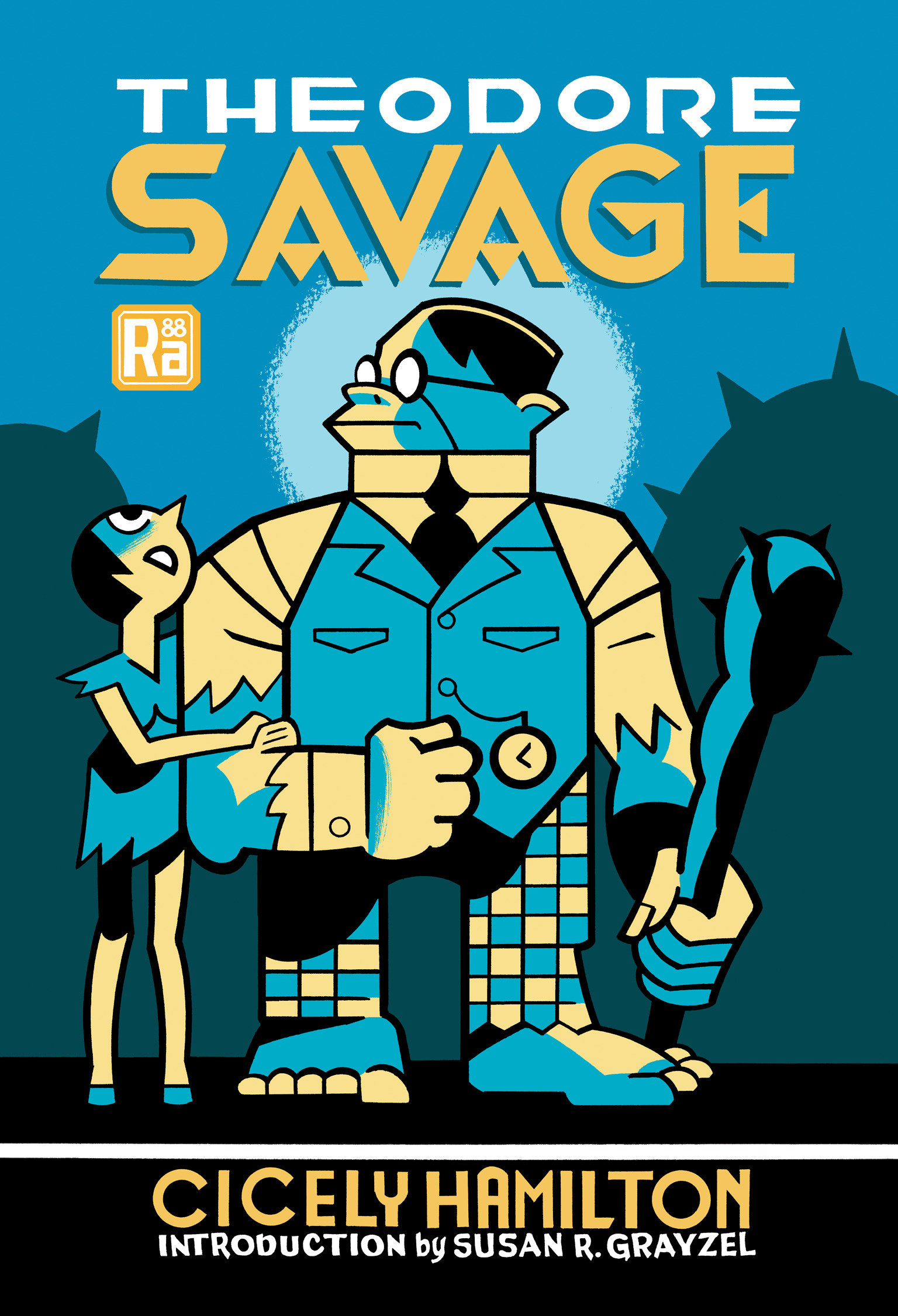Theodore Savage
10.00 JOD
Please allow 2 – 5 weeks for delivery of this item
Description
From one of the earliest feminist science fiction writers, a novel that envisions the fall of civilization—and the plight of the modern woman in a post-apocalyptic wilderness.When war breaks out in Europe, British civilization collapses overnight. The ironically named protagonist must learn to survive by his wits in a new Britain. When we first meet Savage, he is a complacent civil servant, primarily concerned with romancing his girlfriend. During the brief war, in which both sides use population displacement as a terrible strategic weapon, Savage must battle his fellow countrymen. He shacks up with an ignorant young woman in a forest hut—a kind of inverse Garden of Eden, where no one is happy. Eventually, he sets off in search of other survivors . . . only to discover a primitive society where science and technology have come to be regarded with superstitious awe and terror. A pioneering feminist, Hamilton offers a warning about the degraded state of modern women, who—being “unhandy, unresourceful, superficial”—would suffer a particularly sad fate in a postapocalyptic social order.
Additional information
| Weight | 1.6 kg |
|---|---|
| Dimensions | 1.71 × 13.34 × 2.2 cm |
| PubliCanadation City/Country | USA |
| by | |
| format | |
| Language | |
| Pages | 276 |
| publisher | |
| Year Published | 2023-2-7 |
| Imprint | |
| ISBN 10 | 0262545225 |
| About The Author | Cicely Hamilton (1872–1952) was an Anglo-Irish actress, author, and feminist campaigner best known for her 1909 treatise Marriage as a Trade. Her prewar plays include Diana of Dobson’s (1908) and How the Vote Was Won (1909). After working in the north of France during World War I and witnessing how its violence affected civilians, she was inspired to write Theodore Savage (1922), a proto-sf novel presciently foregrounding modern warfare’s destructive power.Susan R. Grayzel is Professor of History at Utah State University, where she researches and teaches about modern European history, women’s and gender history, the history of the world wars, and war and culture. Her publications in these areas include Women’s Identities at War (1999) and At Home and Under Fire (2012). Her latest book is The Age of the Gas Mask: How British Civilians Faced the Terrors of Total War (Cambridge University Press, 2022). |
Included in Tor.com's "Can’t Miss Indie Press Speculative Fiction for January and February 2023""Written in the Interwar Period, Theodore Savage is a terrifying and prescient science fiction novel that’s unflinching in its portrayal of the fragile scaffolding that supports “civilized” society." —ForeWord Reviews, STARRED"Prescient both to Hamilton’s time and to the current moment of war, plague, and refugee crises, this novel deserves to be rediscovered. Readers will have much to chew on."—Publishers Weekly"Decades later, scores of novels about the aftermath of nuclear war would deploy a similar gambit; few are quite this effective."—Los Angeles Review of BooksIn Praise of the Radium Age Series:“Joshua Glenn’s admirable Radium Age series [is] devoted to early- 20th-century science fiction and fantasy.” —The Washington Post“Long live the Radium Age.”—The Los Angeles Times“It’s an attractive crusade. […] Glenn’s project is well suited to providing an organizing principle for an SF reprint line, to the point where I’m a little surprised that I can’t think of other similarly high-profile examples of reprint-as-critical-advocacy. ”—The Los Angeles Review of Books“Neglected classics of early 20th-century sci-fi in spiffily designed paperback editions.”—The Financial Times“New editions of a host of under-discussed classics of the genre.”—Tor.com“Shows that ‘proto-sf’ was being published much more widely, alongside other kinds of fiction, in a world before it emerged as a genre and became ghettoised.”—BSFA Review“A huge effort to help define a new era of science fiction.”—Transfer Orbit“An excellent start at showcasing the strange wonders offered by the Radium Age.”—Maximum Shelfs |
|
| Other text | “Miss Hamilton always writes forcibly, and her present novel deals with the heart-shaking effects of the next war. It might, indeed, be used as a tract to convey an awful warning….”—The Spectator (1922) “Miss Hamilton has spun so finely with the intimate fibres of human emotion and thought that the whole effect is startlingly real.” —The Bookman (1922) “Terror falls from the skies, and within a few months England has become a collection of small tribes living separately and brutishly, tilling the soil and building hutments.” —The Fortnightly Review (1924) “A particularly effective and chilling version of a theme that dominates British speculative fiction between the wars.” —Anatomy of Wonder, Neil Barron, ed. “Hamilton is one of the first—and among the darkest—of those UK novelists whose vision of things was shaped by WWI, which they saw as foretelling the end of civilization.” —The Encyclopedia of Science Fiction, Clute and Nicholls, eds. |
| Table Of Content | Series Foreword viiIntroduction: "The Wars of the Air and the Laboratory": Theodore Savage at 100 xiiiSusan R. GrayzelI 1 II 13III 23IV 37V 43VI 61VII 77VIII 89IX 99X 107XI 117XII 127XIII 135XIV 149XV 157XVI 165XVII 175XVIII 181XIX 197XX 203XXI 213XXII 225XXIII 237 |
| Series |
Only logged in customers who have purchased this product may leave a review.






Reviews
There are no reviews yet.